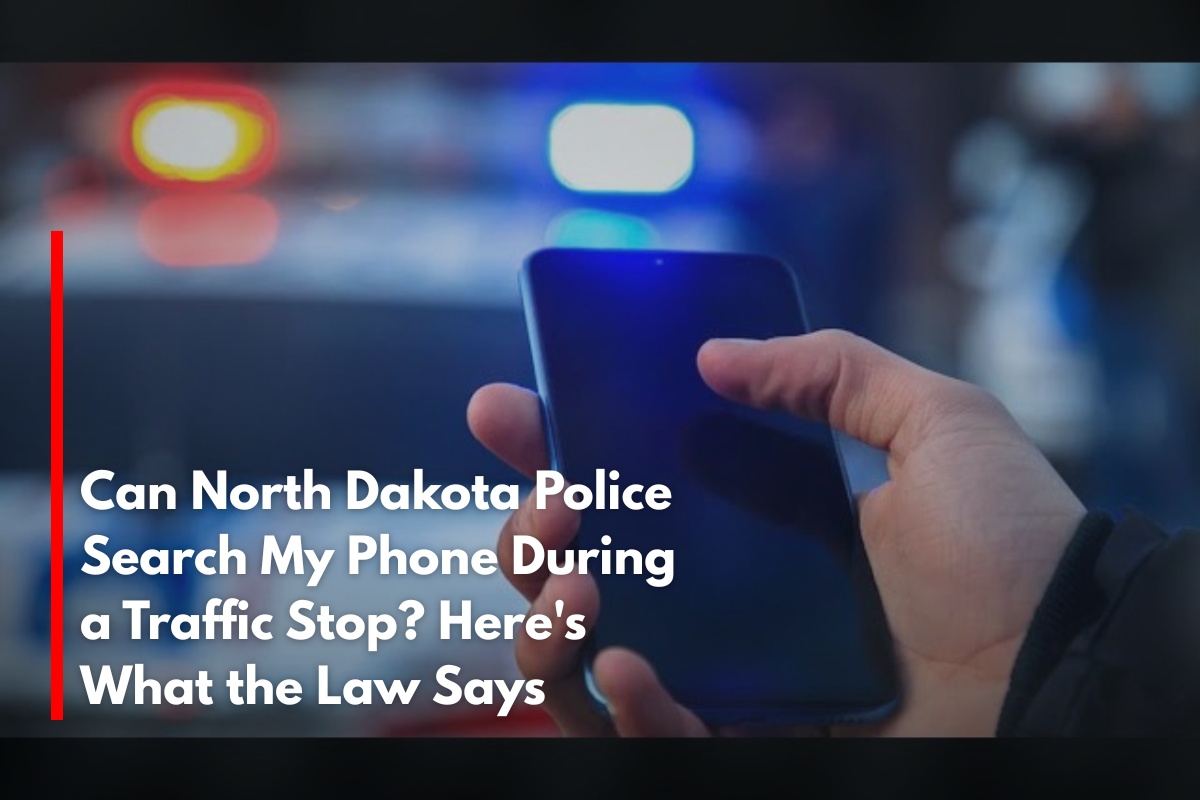With cell phones containing vast amounts of personal information, the question of whether police can search a phone during a traffic stop is crucial for protecting privacy rights. North Dakota law aligns with federal rulings, primarily guarding against unreasonable searches and emphasizing the need for warrants. Here’s what North Dakota drivers need to understand about phone searches during traffic stops.
Fourth Amendment Protections and the Riley Decision
The Fourth Amendment to the U.S. Constitution protects individuals from unreasonable searches and seizures, requiring law enforcement to obtain a warrant based on probable cause before searching personal property, including cell phones.
This became particularly important after the 2014 U.S. Supreme Court ruling in Riley v. California, which established that police generally must obtain a warrant before searching digital information on a cell phone, even after an arrest. The Court recognized that cell phones hold immense private data—much more than traditional physical items—warranting greater privacy protections.
North Dakota law follows this federal precedent, meaning police typically need a warrant to search a phone during or after a traffic stop.
When Can Police Search Your Phone Without a Warrant?
There are a few limited exceptions where police may legally search a phone without a warrant, even in North Dakota:
Consent: If the driver or phone owner voluntarily consents to the search, officers do not need a warrant. However, individuals have the right to refuse consent politely and clearly.
Plain View Doctrine: If illegal material appears on the visible screen of the phone during a lawful interaction, police may seize it but cannot explore other parts of the phone without a warrant.
Exigent Circumstances: In emergencies where there is a risk of immediate danger or destruction of evidence, a warrantless search could be justified, though these cases are rare and closely scrutinized.
Without one of these exceptions, warrantless phone searches are unconstitutional.
Implications of Illegal Phone Searches
If police search a phone without a warrant or valid legal grounds, the evidence obtained can be challenged in court. Defense attorneys in North Dakota often file motions to suppress unlawfully obtained evidence. If the court agrees that the search violated constitutional rights, the evidence may be ruled inadmissible, significantly weakening the prosecution’s case.
Practical Advice for Drivers in North Dakota
Know Your Rights: You have the right to refuse consent for a phone search and can politely state, “I do not consent to a search of my phone.”
Ask for a Warrant: If law enforcement insists on searching your phone, inquire if they have a warrant. A warrant is necessary in most cases.
Stay Calm and Cooperative: Avoid physical resistance or confrontation, which might escalate the situation.
Consult an Attorney: If your phone was searched without your consent or a warrant, immediately seek legal counsel to protect your rights.
North Dakota Phone Search Laws
| Criteria | Law in North Dakota |
|---|---|
| Warrant requirement | Police generally need a warrant to search cell phones |
| Consent | Police can search without a warrant if you give consent |
| Plain view exception | Visible illegal content can be seized |
| Exigent circumstances | Emergency situations may justify warrantless searches |
| Evidence from illegal search | Can be suppressed in court if search violated rights |
In North Dakota, police cannot legally search a phone during a traffic stop without a warrant unless one of the narrow exceptions applies. The Riley ruling solidifies strong privacy protections for drivers, emphasizing the need for a warrant to explore the extensive personal data on cell phones. Knowing these rights and how to assert them can protect drivers from unlawful searches and preserve the integrity of their personal information.
If a phone search has already occurred under questionable circumstances, consulting an experienced North Dakota criminal defense attorney is crucial to explore options like challenging illegally obtained evidence.
Sources
(https://www.heartlandlawoffice.com/post/can-police-search-my-phone-without-a-warrant-in-north-dakota)
(https://law.und.edu/_files/docs/ndlr/pdf/issues/96/1/96ndlr81.pdf)
(https://www.dmtlaw.com/blog/can-police-search-your-phone-during-a-traffic-stop/)
(https://www.ndcourts.gov/legal-resources/rules/ndrcrimp/41-4)
(https://commons.und.edu/cgi/viewcontent.cgi?article=2147&context=ndlr)











